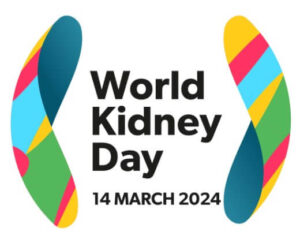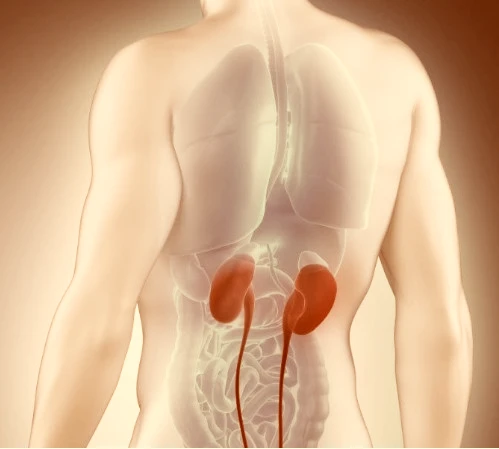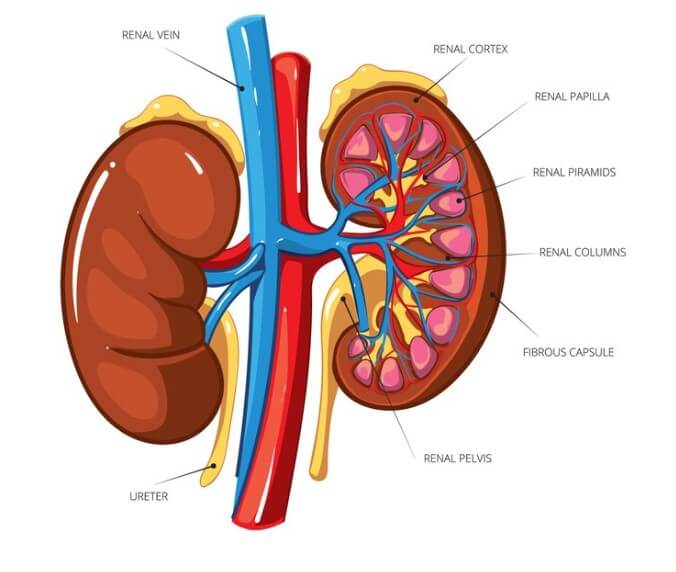
Menu
The kidneys are two small organs that play a vital role in maintaining the balance of fluids and electrolytes in your body. Each kidney is about the size of your fist and is located on either side of your spine, just below your ribcage.
The kidneys filter about 120 to 150 quarts of blood daily, removing waste products and excess fluid from your body to produce 1 to 2 quarts of urine. They also help regulate blood pressure, produce hormones that stimulate red blood cell production, and maintain the acid-base balance in your body.
Unfortunately, kidney disease often goes unnoticed until it is in its later stages, as symptoms may not appear until significant damage has already occurred. It is essential to maintain good kidney health through lifestyle changes such as staying hydrated, eating a healthy diet, exercising regularly, and avoiding harmful substances like tobacco and excessive alcohol consumption.
World Kidney Day, observed annually on the second Thursday of March, aims to raise awareness about kidney health and encourage people to take steps to keep their kidneys healthy. So, take the opportunity to learn more about the importance of maintaining good kidney health and how to prevent kidney disease on this day.

“Kidney disease is a silent killer. You may not know the symptoms untill it’s too late. Get Screened today”

Kidney health for allAdvancing equitable access to care and optimal medication practice


Kidneys are vital organs located near the middle of the back, just below the rib cage, each about the size of a fist. They play several crucial roles in maintaining overall health and well-being.
Kidneys act as natural filters for the blood. They help remove waste products and excess fluids from the body, which are then expelled as urine. This process is essential for maintaining proper electrolyte balance, regulating blood pressure, and ensuring overall metabolic stability.
Kidneys are involved in the production of certain hormones that are crucial for various bodily functions. One such hormone is erythropoietin, which stimulates the production of red blood cells in the bone marrow. Another hormone produced by the kidneys is renin, which helps regulate blood pressure and electrolyte balance.
The functions of the kidneys are integral to the body’s overall homeostasis, ensuring that waste products are removed efficiently and that essential substances are retained in the bloodstream at appropriate levels.
World Kidney Day is an annual global health awareness campaign observed on the second Thursday of March each year. It aims to raise awareness about the importance of kidney health, highlight the impact of kidney diseases, and advocate for the prevention and early detection of kidney-related conditions.
This initiative was established to address the growing burden of kidney diseases worldwide and to promote education and access to healthcare services related to kidney health. Through various events, activities, and campaigns organized by healthcare professionals, patient groups, and organizations, World Kidney Day seeks to inform individuals about the risk factors for kidney diseases and encourage healthy lifestyle choices to prevent their occurrence.
The theme for World Kidney Day varies each year but always focuses on important aspects of kidney health, such as kidney disease prevention, early detection, treatment, and patient care. The theme for 2024 is Kidney Health for All – Advancing equitable access to care and optimal medication practice.
Kidney disease typically impacts both kidneys, which can result in serious damage to the ability of kidneys to filter the blood. This may lead to the build-up of excess fluid and waste in the body. Although many forms of kidney disease may not show any symptoms until later stages, there are 6 warning signs to watch out for
Kidney disease can lead to a variety of serious health issues, impacting multiple systems within the body. Here’s a brief overview of the potential complications associated with kidney disease:
At North City Diagnostic Center we offer personalized testing schedule that aligns with your medical history and risk factors. Consistent monitoring can be invaluable for early detection and effective management of arthritis. It’s not just about how often you test but making sure that the tests are aligned with your overall health profile for maximum benefit.
#WorldKidneyDay #LifestyleTips #KidneyHealth #ChronicKidneyDisease #KidneyComplication #KidneyCare #GoodLife #Nephrology #KidneyDiseaseDiagnosis #HealthCheckUp #RenalHealth #CKD #NDC #HealthFirst #DiagnosticServices #NorthCityDiagnosticCentre #RoadmapToGoodHealth #Wellbeing #HealthandWellness
35-A ,Canal West Road
Near Gouri Bari Bus Stop
Kolkata – 700004.
Local: +91 33 6605 0888